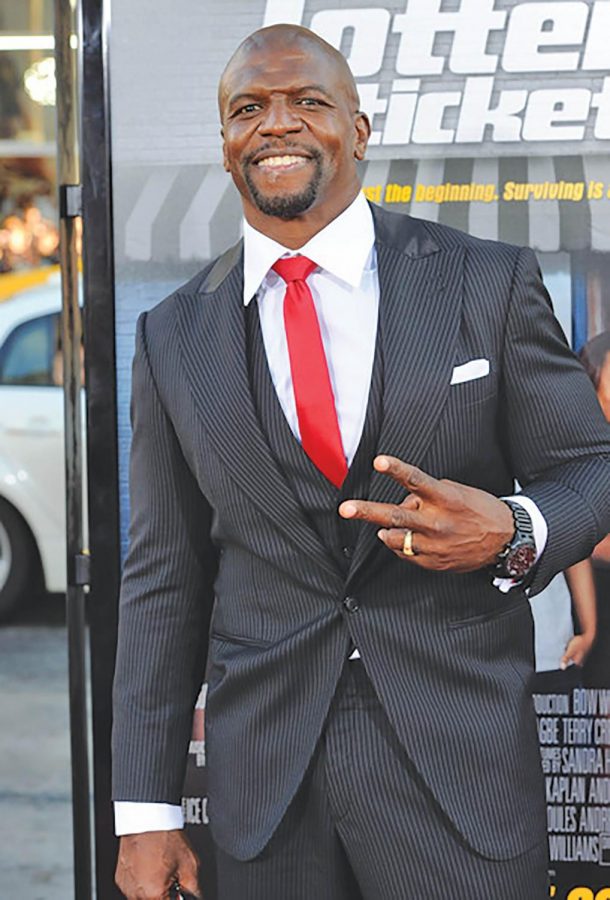Actor, sexual assault survivor undeserving of harsh rhetoric
Crews initially came out about his sexual assault experience on Twitter in Oct. 2017.
In 2018, actor Terry Crews came forward about the sexual assault he experienced from a high-level Hollywood executive. His admission came amidst the traction the Harvey Weinstein case was receiving while many women accused Weinstein of sexual assault throughout their careers.
This soon prompted the #MeToo Movement as thousands of others began to share their stories– one being Terry Crews. He bravely shared his story, and received mountains of support, but he has also received an almost equal amount of backlash and hate for exposing his vulnerability.
Many responses Crews received were unforgivably vile, ridiculing him for the assault he experienced. The ridicule went along the lines of, how can a man of his size and stature truly be sexually assaulted? Many comments such as this were made when the actor first came forward, but even now, several months later, he continues to receive hatred from those that mock him.
Just recently, comedian D.L. Hughley was asked for commentary on Crews’ sexual assault and he responded by implying that a man with his strength would be able to prevent the assault. In this same interview, Hughley said, “God gave you muscles so you can say no and mean it.”
Crews responded to this interview via Twitter, which then incited an array of Twitter responses in which D.L. Hughley implied that Crews was perfectly capable of preventing the assault through physical violence. This Twitter exchange became viral because it was D.L. Hughley, but it is no different from the many other comments and replies Terry Crews now receives regularly. A great majority of these comments come from males.
This brings to question the looking glass our society continues to view the male gender. The phrase “toxic masculinity” is one that is used fairly often as we continue to evaluate the way men tear down others, due to a feeling of superiority.
When it comes to sexual assault, men are the prime population that question the validity of a sexual assault claim. When a woman in the public eye comes forward about her experience, throughout social media there is a constant clamor for proof, defense of the abuser and the idea that she may be lying. Now this happens when a woman comes forward, but when a man does, it is much worse.
A man that is honest about being sexually assaulted may oftentimes face both humiliation and rejection from his peers. The notion of this happening is deemed laughable because men are expected to be tougher and stronger– a real man wouldn’t have let this happen.
Men are also often criticized because people get wrapped up in the physiological factors that they determine it is simply not possible for a man to be sexually assaulted. Both of these points being very incorrect. In order to combat this, as a society we must embrace and encourage the idea of male vulnerability. Toxic masculinity is fed by upholding the unrealistic societal expectation that men must always be strong and their emotions placed on the back burner. This notion should be turned down and in its place we need to make room for an open dialogue that addresses the reality of men without the bravado.






